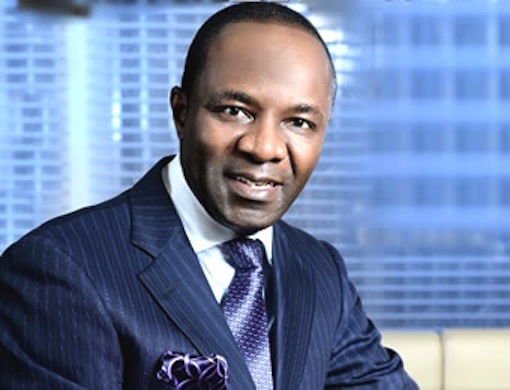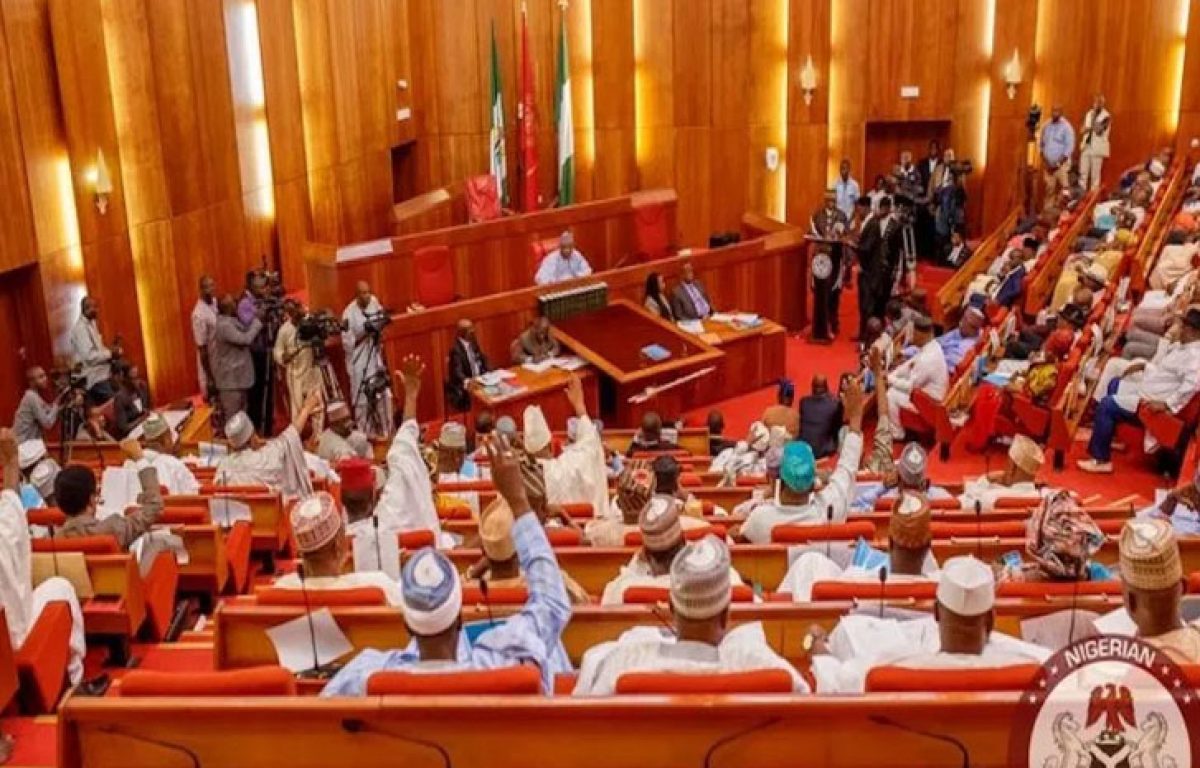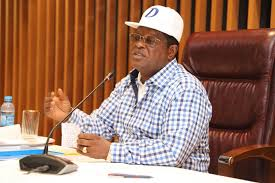Business
At Last Oil Exporters Discuss Output Freeze

The world’s leading oil exporters could be about to take action following the fall in prices. This has become necessary after months of oil price fluctuations and instability. Mathew OMEJE, with agency report, examines the situation.
Members of the exporters’ group OPEC, together with some other oil producers, are currently meeting in Qatar and part of the discussion will focus on freezing output.
They want to push up the price of crude oil, which is less than half what it was in June 2014
OPEC had been much quicker to respond, often cutting output in previous episodes of falling prices.
The agenda for the meeting in Doha, the capital of Qatar, is a freeze in production. No cuts in other words, just a commitment to no more increases.
But even that possibility has given some support in recent weeks to the price of oil. The low it reached earlier this year was about $27 a barrel for Brent crude oil, one of the leading international market prices.
This week it has been very close to $45. That is to a large extent due to traders considering the possibility that some oil producers are close to taking some sort of action to push prices higher.
It’s worth emphasising that even at current levels the price of oil is far below where it was as recently as June 2014 – when it reached $115.
The fall has hurt many oil producing countries. Earlier this week, the International Monetary Fund said it had damaged financial stability and the government finances in many of them.
The meeting is not formally an OPEC event, though all or very nearly all the group’s members will be represented. There will also be some non-members, notably Russia.
The decision to hold this meeting, with a rather unusual group of attendees, reflects the oil exporters’ persistent concerns about the level of prices and a feeling that any action needs to involve more than just the members of OPEC.
Two of the world’s leading producers are not going to be there: the US and China. Both countries have large oil production industries, but they use nearly all of it themselves, and have to import extra to meet their own needs. Their economies overall tend to benefit from cheaper oil so they don’t have a shared interest with those who will be turning up in Doha.
Still, there is more than enough oil production that will be represented there to make a substantial difference to the global market if the participants chose to take strong action.
What many oil analysts say, however, is that they aren’t talking about action that is going to achieve much. In the past, OPEC has often managed to agree and deliver cuts in production. This time all that’s on the table is a potential agreement to refrain from further increases.
Among the countries attending there is certainly a good deal of support for the idea. But one important player, an OPEC member, is determined to increase its production: Iran.
As the country emerges from western sanctions, the Iranian government wants to regain the share of the market that it lost as a result of those restrictions on its international sales.
Iran is not even sending its oil minister Bijan Zanganeh to the meeting, although another senior official is expected to attend.
Saudi Arabia’s Deputy Crown Prince has said that a freeze could only happen if Iran takes part. But there are doubts about whether this really is the Kingdom’s last word.
Saudi concerns are the key reason why countries outside OPEC are involved. Whenever OPEC has cut production in the past, Saudi Arabia has tended to make the biggest contribution. But this time, they were reluctant to take the loss of market share that would involve. But it’s less of a sacrifice if some other countries take part. The US never would, so Russia is the biggest producer that could be involved.
So if they can agree a freeze, would it make much difference? London consultancy Capital Economics said in a note to clients: “Freezing output at current high levels would simply maintain the excess supply that is now in place and as such would not be a game changer.”
Perhaps what would make more difference is the much anticipated decline in American shale oil production which appears to be finally gathering pace, according to the International Energy Agency, an official organisation which monitors the energy situation for its member countries.
In fact one reason for Saudi Arabia’s reluctance to take action sooner is widely thought to have been a desire to keep the pressure on its competitors in the US shale business.
It’s worth remembering that the rise of shale oil in the US has transformed the global market. The increased US supply is one of the key factors that have been bearing down on international oil prices, along with weakness of demand which in turn reflects China’s economic slowdown and the failure of the global economy to generate robust growth.
Having said all that, this meeting might turn out to have some symbolic significance. OPEC has been very slow to respond to what is a serious problem for its members. Most recently when the group met in December last year, their final statement surprised many observers when it did not even mention a production ceiling, something they nearly always set out at their regular meetings.
Analysts at Barclays Research said ahead of the Doha event: “OPEC December meeting was a failure, but Doha gives the organisation the opportunity to reassert its relevance.”
Business
Senate Committee Commends Tinubu on Launch of National Halal Economy Strategy to Tap $7.7trn Global Market*

The Senate Committee on Finance has commended President Bola Ahmed Tinubu for launching Nigeria’s National Halal Economy Strategy, describing it as a bold and strategic move to position the country within the lucrative global halal market, estimated at $7.7 trillion.
In a statement signed by its Chairman, the committee praised the initiative as timely and aligned with international best practices. Several countries—including the United Kingdom, Canada, Australia, Malaysia, Indonesia, Saudi Arabia, the United Arab Emirates, Turkey, Brazil, Thailand, and Singapore—have successfully used halal frameworks to boost manufacturing, agricultural exports, financial markets, and foreign investment.
The committee highlighted Nigeria’s strong advantages for success in this space, including its vast agricultural resources, large domestic market, youthful population, growing manufacturing sector, and expanding services industry.
It noted that the strategy fits seamlessly into the Tinubu administration’s broader economic reforms, such as boosting non-oil revenue, diversifying exports, creating jobs, supporting small and medium enterprises (SMEs), and increasing foreign exchange earnings.
President Tinubu, represented by Vice President Kashim Shettima, officially unveiled the strategy on Thursday, February 6, 2026, at the Presidential Villa in Abuja.
The framework, developed in collaboration with Saudi Arabia’s Halal Products Development Company (HPDC) following a bilateral agreement signed in February 2025 at the Makkah Halal Forum, aims to enhance quality standards, certification processes, and competitiveness across sectors like food, pharmaceuticals, cosmetics, tourism, and ethical finance.
The committee described the strategy as inclusive, market-driven, and globally oriented, while fully respecting Nigeria’s diverse and pluralistic society.
It is projected to contribute significantly to the economy, with estimates suggesting it could add around $1.5 billion to Nigeria’s GDP by 2027 and unlock billions more in domestic value over the coming decade through expanded exports and investment.
The Senate Committee on Finance pledged its full legislative support, oversight, and cooperation to ensure smooth implementation, regulatory clarity, and long-term fiscal sustainability in the national interest.
“This decisive step reinforces Nigeria’s readiness to adopt proven international models, unlock new economic frontiers, and establish itself as a competitive player in the evolving global economy,” the statement concluded.
Business
Ex-Naval Chief Named in ₦100m Property Transaction Dispute
A property transaction dispute has emerged involving Zoe New Dawn Nigeria Limited and a former Chief of Naval Staff, following claims by the company’s chairman, Engr. Dr. Stephen Achema Akpa, that a ₦100 million payment made for land was not followed by a transfer of ownership.

According to Akpa, the payment was made in connection with a land transaction reportedly facilitated by the former naval chief. He alleged that despite documented payments, the land in question was neither transferred to the company nor was the money refunded.
Akpa said Zoe New Dawn Nigeria Limited possesses transaction records and related documents which, he claims, support its position in the dispute. He added that the company has initiated steps to seek redress through appropriate legal channels.
The matter has drawn attention due to the profile of the parties involved, particularly against the backdrop of recurring disputes linked to land ownership and property transactions in Nigeria’s real estate sector.
Industry observers note that unresolved land transactions remain a common source of litigation, often arising from disagreements over title documentation, intermediaries, and contractual obligations.
Zoe New Dawn Nigeria Limited stated that it intends to pursue the matter through lawful means to determine liability and recover any funds deemed outstanding.
As of press time, no official response had been issued by the former Chief of Naval Staff regarding the allegations. The dispute has not yet been confirmed as the subject of any court proceedings.
Business
Umahi Inspects Lekki Corridor’s 7th Axial Road Project, Expresses Confidence in CHEC

Minister of Works Senator Dave Umahi over the weekend inspected the progress of the 7th Axial Road project in the Lekki Corridor of Lagos.
The project, located behind the Dangote Refinery, is a crucial cargo handling route for the Lekki Deepwater Port and connects the Lekki Corridor with the Sagamu route.
The Minister expressed confidence in China Harbour Engineering Company Limited (CHEC), the project’s contractor, citing its successful delivery of the Lekki Deepwater Port and high-quality progress on the Makurdi-Enugu road reconstruction and expansion project. Umahi instructed that the roadbed filling work for Project LOT1 be completed by the end of April and directed the project team to accelerate resource input and tangible works to meet the deadline.
The 7th Axial Highway is expected to synergize with key infrastructure projects like the Coastal Road, Dangote Road, and Lekki Port, creating a comprehensive transportation hub model and boosting Nigeria’s port economy and industrial corridor. Umahi emphasized the need for environmental protection agencies to ensure efficient construction and steady progress while maintaining ecological safety.
A representative of CHEC who spoke during the inspection stated that the company would maintain a high level of resource input, implement the Minister’s directives, and coordinate safety, quality, and environmental protection to ensure the project’s timely and high-quality completion in other to unluck its port relief and regional economic benefits.
-

 Uncategorized5 years ago
Uncategorized5 years agoFG, states urged to harness flooding for ranching, others with technology – Agbaje
-

 Headlines10 years ago
Headlines10 years agoBreaking: EFCC seals Borno House of Assembly, as Hon members take to their heels
-

 News12 years ago
News12 years agoNigeria Security Operatives Stage Manhunt For Homosexual Perpetrator
-

 News9 years ago
News9 years agoHow 21-year-old Girl fled community over accusation of lesbianism
-

 News10 years ago
News10 years agoYobe Gov Moves Against Deputy
-

 Opinion7 years ago
Opinion7 years ago7 signs she has friend zoned you
-
Technology4 years ago
Online job placement company headhunts women
-

 Headlines10 years ago
Headlines10 years agoBorno Dep Gov Abducts Another Church Leader





